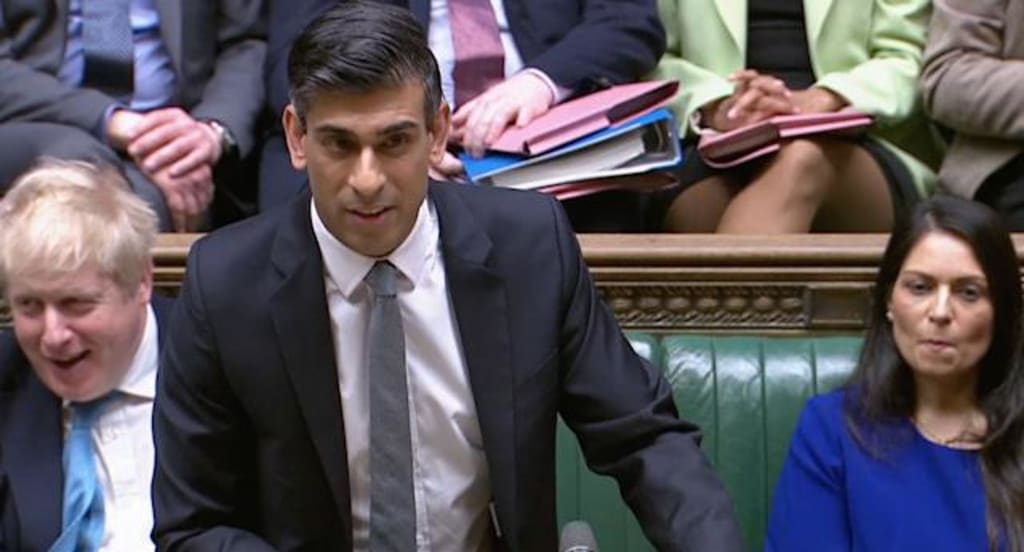
Rishi Sunak has delivered his Spring Statement to the House Of Commons in which he gave details on how the economy was managing in the light of the Covid 19 pandemic and in the aftermath of the Brexit vote. Following the vote to leave the European Union, many people who were living in the UK from the European Union, or who were working for UK based companies will have had to leave unless they qualified for a so called “Settled Status”. This may have left many businesses who depend on workers from the European Union short handed as they will now have a number of vacancies which they will have to fill in order to cater for the clients they serve. This will have left them facing a short fall in the amount of revenue they will have built up through their businesses and will leave them having to resort to apply for benefits.
During the pandemic, people around the world were requested to stay at home. They were only permitted to leave their homes for certain reasons which included buying essential items that they needed in their every day lives and taking short amounts of exercise to ensure that they remained healthy. People were requested to work from home where ever possible to minimise the amount of social contact they had with others, to avoid unintentionally spreading the virus round the country. People could also be furloughed from their place of work to help ensure that there was as little risk as possible of the virus spreading and to enable businesses to manage at a time when they had no physical customers as everyone had to stay at home to prevent the spread of the virus.
This will have left people struggling to afford everyday items as they won’t have been earning as much as they did when they were in work. To help the country cope following the removal of these restrictions, the Chancellor set out a number of steps in an effort to help people manage during these difficult times. These included:
The UK economy is forecast to grow by 3.8% this year, according to the Office for Budget Responsibility, a sharp cut from its previous prediction of 6.0%
The economy is then forecast to grow by 1.8% in 2023, 2.1% in 2024, 1.8% in 2025 and 1.7% in 2026
The annual inflation rate was 6.2% in February, and is likely to average 7.4% for the rest of this year, but with peak of 8.7% in the final quarter of 2022
The unemployment rate is now predicted to be lower over the next few years than in the OBR’s previous forecast in October
Debt as a percentage of GDP is expected to fall from 83.5% of GDP in 2022/23 to 79.8% in 2026/27
The government is forecast to spend £83bn on debt interest in the next financial year, the highest on record
With regard to the cost of fuel, legislation has now been put in place for people to get 5p of the cost of a litre of fuel until March 2023. Petrol and Diesel prices have been soaring in recent times and now that people are able to go out and about again, will have started to feel the pinch every time they stopped to fill their car up with fuel again. The extra leigh way will help give people a little extra breathing space during these difficult times.
Homeowners who decide to install energy efficient materials on their homes such as sola panels or heat pumps will benefit from a cut in the cost of these items from 5% to 0 for five years.
Local authorities will get another £500m for the Household Support Fund from April, creating a £1bn fund to help vulnerable households with rising living costs
The income threshold for at which point people start paying National Insurance will rise to £12,570 in July, which Mr Sunak said was tax cut for employees worth over £330 a year
Mr Sunak pledged to cut basic rate of income tax from 20p to 19p in the pound before the end of this Parliament
The Employment Allowance, which gives relief to smaller businesses’ National Insurance payments, will increase from £4,000 to £5,000 from April
There have been many disagreements about the new policies the Chancellor has announced, many of whom say that the new measures are a start but don’t go far enough to ensure that everyone is sufficiently catered for. Many people say that more measures should have been brought in to adequately bring down the costs of goods and services to help people manage.
Many people who will have been struggling and had to resort to going on benefits will find life increasingly difficult so measures need to be brought in to adjust for this.